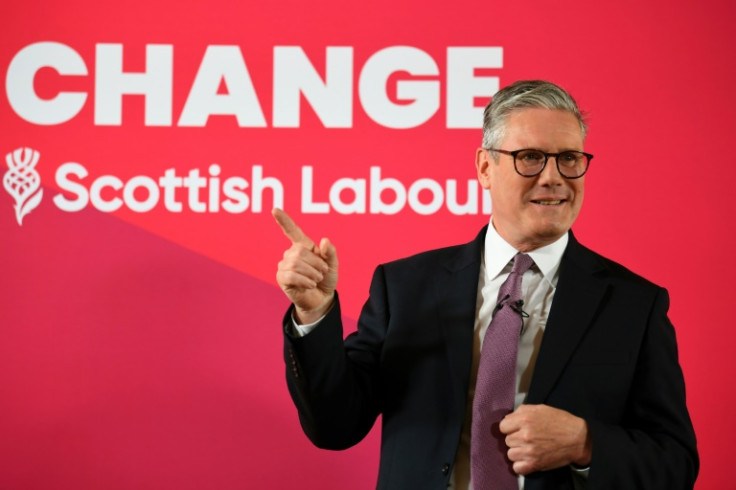
Britain's Labor opposition party committed Monday to ensuring the UK's nuclear arsenal, pitching itself as strong on defense for July's election in contrast to the last vote, when it lost heavily.
Leader Keir Starmer said Labor was "the party of national security" as he tried to reassure voters that the center-left grouping has changed since he succeeded socialist Jeremy Corbyn four years ago.
Corbyn, who led Labor to a landslide defeat to the Conservatives at the 2019 election, was seen as weak on defense because of his support for nuclear disarmament and ambivalence towards NATO.
But Labor under the more centrist Starmer has committed to what it calls a "nuclear deterrent triple lock" that involves the construction of four new nuclear submarines.
The other two elements are maintaining Britain's continuous at-sea deterrent and the delivery of all future upgrades needed for submarines to patrol waters effectively.
Labor, well ahead in opinion polls ahead of the election on July 4, also wants to increase defense spending to 2.5 percent of gross domestic product (GDP), up from 2.3 percent currently.
"Keeping our country safe is the bedrock of stability that the British people rightly expect from their government," Starmer said in a statement.
"My message to them is clear: Labor has changed. No longer the party of protest, Labor is the party of national security."
The Conservatives, traditionally seen by voters as the party most trusted to protect the UK, has said it would meet the 2.5 percent defense spending target by 2030.
Labor has so far refused to set a timeline, saying only that it would raise spending when economic conditions allow.
The Conservatives, in power since 2010, point out that several members of Starmer's top team have in the past voted against renewing Britain's nuclear deterrent, known as Trident.







